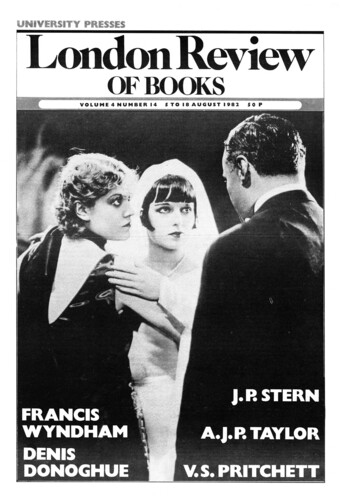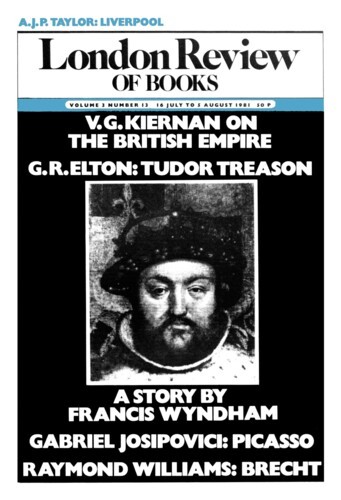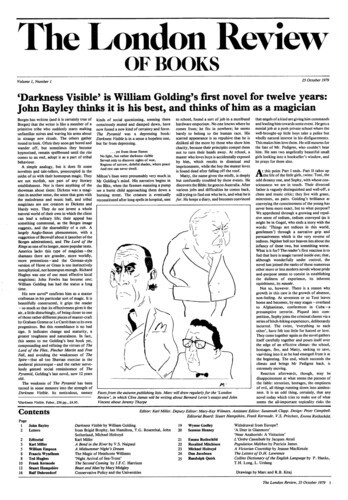I sometimes argue with my friend Heathcote Williams about his use of pornography as a means of attacking his political enemies. It seems to me an irrelevant weapon in any context, and in the hands of a man with Heathcote’s anarchistic, optimistic, nearly utopian convictions it becomes puzzlingly inconsistent. His polemical essays have been appearing, often unsigned, in the underground press over the past decade, and a selection, entitled Severe Joy, is listed for publication next year by John Calder. They abound in fantastic, and often very funny, descriptions of the people he disapproves of (such as Mrs Thatcher, Enoch Powell, Ian Paisley, the Royal Family and Jesus Christ) engaged in eccentric forms of sexual intercourse. One might almost assume from a few of these scatological diatribes that he thought there was something intrinsically disgusting and automatically degrading about physical love – and yet the opposite is the case. After all, he was a leading light at the Wet Dream Film Festival organised by Suck magazine in Amsterdam nine years ago, and I have heard him express the belief that human sperm contains psychedelic properties. To quote from the 278-year-old hero of his play The Immortalist: ‘One of the purposes of love-making (not that you can make love – love is) is to achieve immortality … When it fails, you get conception.’ This seems to imply, in its paradoxical fashion, that Heathcote sees the act of copulation as potentially mystical, perhaps even sacred. So why the emphasis on obscenity as a form of abuse? Isn’t there some element of contradiction here? But my argument gets nowhere. Heathcote scowls prettily, tosses what can only be called his ‘unruly curls’, accuses me of being an irredeemable media turd and a closet Monarchist.
I sometimes argue with my friend Heathcote Williams about his use of pornography as a means of attacking his political enemies. It seems to me an irrelevant weapon in any context, and in...



